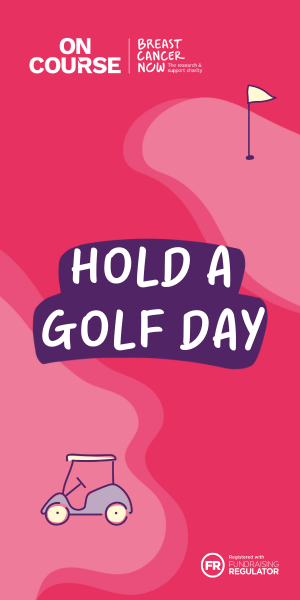We look at the impact of menstrual cycles on performance and ask: Is it really possible to harness the power of our hormones and play better golf?
Periods are a pretty hot topic in the media right now. But despite Aunt Flos recent flurry of attention, as women, a lot of us are woefully uneducated about our monthly cycles. I know I certainly am. We spend all our time trying to alleviate the symptoms of our cycles, but have we been taking our hormone spikes for granted – is there a way to use them to our advantage instead?
It wasn’t me, it was my hormones
Mood swings, quality and quantity of sleep, cramps and energy levels … our menstrual cycles have a lot to answer for.
But can we actually harness the power of our hormones and use them to our advantage to play better golf?
The short answer is, yes.
Research is still pretty limited on the impact of menstrual cycles on sports performance, but there’s growing evidence to suggest that it is possible to hack your monthly cycle to power up your game.
There’s no “normal” when it comes to menstrual cycles, but generally:
Menstrual phase
Normally lasting up to seven days, your period is the start of your cycle and occurs during the follicular phase. With oestrogen and progesterone levels both low, and the fact that you’re losing blood, it’s normal to feel tired during this phase of your cycle.
Now’s the time to take it easy – nine holes in the morning, an hour of short game practice or gentle Pilates are all great for this point of your cycle.
Follicular phase
After your period, oestrogen levels start to rise, so you’ll have more energy again. Oestrogen is also thought to have a positive effect on your mood, so you may have more motivation to play, practice or train during this phase of your cycle.
Ovulation phase
Oestrogen and progesterone are at their peak here, so this is when you’ll feel most active and energetic. This is the best time to schedule that knockout match or get on the range and do some serious practice.
Now could also be the best time to work on your strength and fitness – if you’re a gym goer, this is when you’ll be able to push yourself a bit harder and start seeing more gains.
Luteal phase
Oestrogen levels fall quickly after ovulation, but with a rise in progesterone levels, your muscles adapt and recover better and fatigue less. That makes it a great time to play more golf and keep pushing your workouts.
It may not be the best time to make any dramatic swing changes though; progesterone can impact the way your brain picks up new skills, so you may find changing your technique here is more difficult. At this point in your cycle, your basal body temperature increases. If you’re playing golf on a hot day, you may find that you struggle in the heat more than you usually do, so take plenty of water and dress to stay cool.
How to track your cycle
It’s common for athletes to track the physiological and psychological changes that happen during their cycles, but that shouldn’t be reserved only for the ultra-elite.
There’s a slew of cycle tracking apps on the market, and if you have an iPhone, there’s a handy little cycle tracking option on Apple’s Health app. And if you’re looking for workouts tailored to your cycle, Olympic gold medallist Jessica Ennis-Hill has recently launched CycleMapping; an app that lets you map your training to your menstrual cycle. That could look like targeted yoga sessions during your period and HIIT sessions later in your cycle.
Periods and participation
Despite Aunt Flo visiting almost half the population every month, periods remain a taboo topic the world over.
In fact, a survey by Plan International revealed that almost 50% of women aged 14-21 are embarrassed by their period.
Sorry, what?
But what’s particularly worrying is that the embarrassment and secrecy surrounding periods can have a huge impact on girls’ and women’s participation in sport. Recent research from Women in Sport has shown that fears, anxieties and embarrassment about periods is most common amongst girls during puberty (unsurprisingly), and that really negatively impacts their participation and engagement in sport in the long term.
And I have no doubt that extends to golf too – especially when you add a lack of on-course toilets to the equation.
It’s a topic I could go on about for a while, but I’ll keep it short.
There are so many physical, mental and social benefits of playing golf and exercising in general. We need to do better, and we need to keep girls in the game.
Period.
Written by Charlotte Ibbetson

Charlotte is a PGA Professional Golfer and founder of Qwerky Comms; a brand and marketing consultancy delivering innovative communication strategies that really make an impact.















